英国文学3部分
- 格式:doc
- 大小:68.00 KB
- 文档页数:5
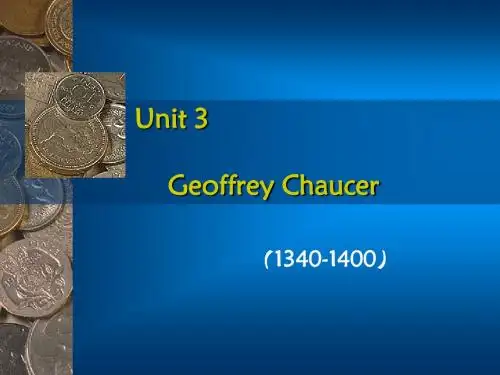

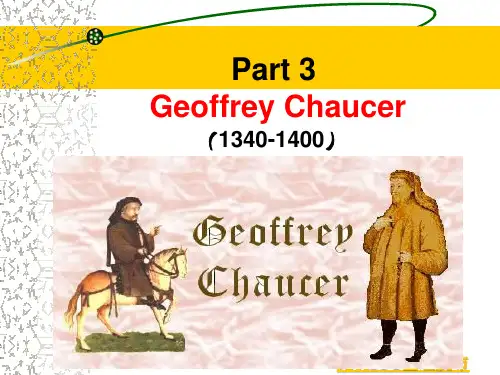
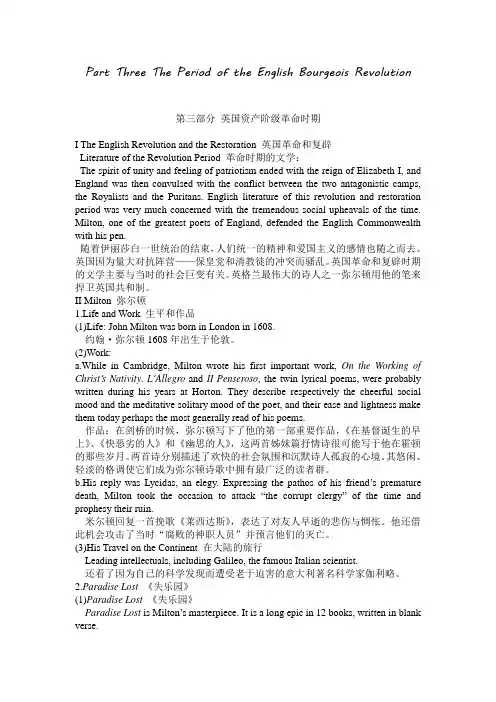
Part Three The Period of the English Bourgeois Revolution第三部分英国资产阶级革命时期I The English Revolution and the Restoration 英国革命和复辟Literature of the Revolution Period 革命时期的文学:The spirit of unity and feeling of patriotism ended with the reign of Elizabeth I, and England was then convulsed with the conflict between the two antagonistic camps, the Royalists and the Puritans. English literature of this revolution and restoration period was very much concerned with the tremendous social upheavals of the time. Milton, one of the greatest poets of England, defended the English Commonwealth with his pen.随着伊丽莎白一世统治的结束,人们统一的精神和爱国主义的感情也随之而去。
英国因为量大对抗阵营——保皇党和清教徒的冲突而骚乱。
英国革命和复辟时期的文学主要与当时的社会巨变有关。
英格兰最伟大的诗人之一弥尔顿用他的笔来捍卫英国共和制。
II Milton 弥尔顿1.Life and Work 生平和作品(1)Life: John Milton was born in London in 1608.约翰·弥尔顿1608年出生于伦敦。
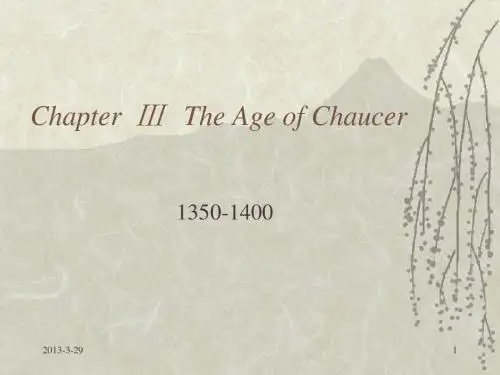
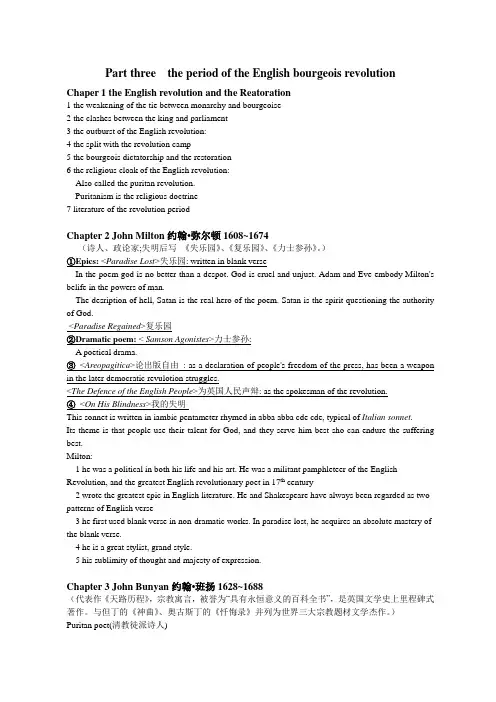
Part three the period of the English bourgeois revolution Chaper 1 the English revolution and the Reatoration1 the weakening of the tie between monarchy and bourgeoise2 the clashes between the king and parliament3 the outburst of the English revolution:4 the split with the revolution camp5 the bourgeois dictatorship and the restoration6 the religious cloak of the English revolution:Also called the puritan revolution.Puritanism is the religious doctrine7 literature of the revolution periodChapter 2 John Milton约翰•弥尔顿1608~1674(诗人、政论家;失明后写《失乐园》、《复乐园》、《力士参孙》。
)①Epics: <Paradise Lost>失乐园: written in blank verseIn the poem god is no better than a despot. God is cruel and unjust. Adam and Eve embody Milton's belife in the powers of man.The desription of hell, Satan is the real hero of the poem. Satan is the spirit questioning the authority of God.<Paradise Regained>复乐园②Dramatic poem: < Samson Agonistes>力士参孙:A poetical drama.③<Areopagitica>论出版自由: as a declaration of people's freedom of the press, has been a weapon in the later democratic revulotion struggles.<The Defence of the English People>为英国人民声辩: as the spokesman of the revolution.④<On His Blindness>我的失明This sonnet is written in iambic pentameter rhymed in abba abba cde cde, typical of Italian sonnet.Its theme is that people use their talent for God, and they serve him best sho can endure the suffering best.Milton:1 he was a political in both his life and his art. He was a militant pamphleteer of the English Revolution, and the greatest English revolutionary poet in 17th century2 wrote the greatest epic in English literature. He and Shakespeare have always been regarded as two patterns of English verse3 he first used blank verse in non-dramatic works. In paradise lost, he acquires an absolute mastery of the blank verse.4 he is a great stylist, grand style.5 his sublimity of thought and majesty of expression.Chapter 3 John Bunyan约翰•班扬1628~1688(代表作《天路历程》,宗教寓言,被誉为“具有永恒意义的百科全书”,是英国文学史上里程碑式著作。
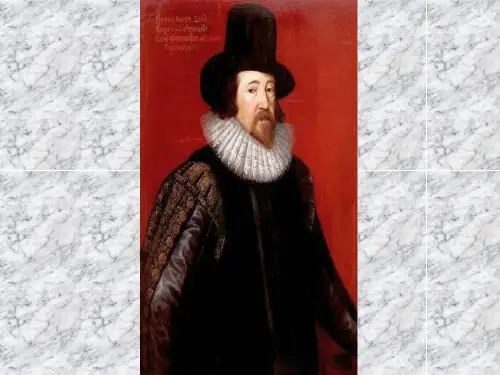
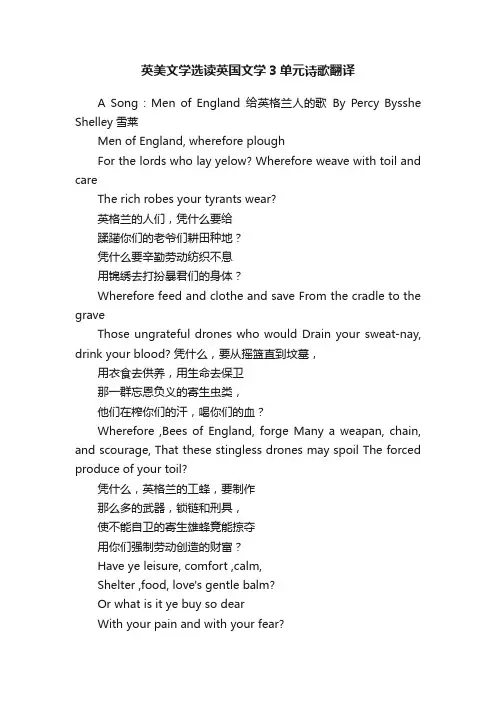
英美文学选读英国文学3单元诗歌翻译A Song : Men of England给英格兰人的歌By Percy Bysshe Shelley雪莱Men of England, wherefore ploughFor the lords who lay yelow? Wherefore weave with toil and careThe rich robes your tyrants wear?英格兰的人们,凭什么要给蹂躏你们的老爷们耕田种地?凭什么要辛勤劳动纺织不息用锦绣去打扮暴君们的身体?Wherefore feed and clothe and save From the cradle to the graveThose ungrateful drones who would Drain your sweat-nay, drink your blood? 凭什么,要从摇篮直到坟墓,用衣食去供养,用生命去保卫那一群忘恩负义的寄生虫类,他们在榨你们的汗,喝你们的血?Wherefore ,Bees of England, forge Many a weapan, chain, and scourage, That these stingless drones may spoil The forced produce of your toil?凭什么,英格兰的工蜂,要制作那么多的武器,锁链和刑具,使不能自卫的寄生雄蜂竟能掠夺用你们强制劳动创造的财富?Have ye leisure, comfort ,calm,Shelter ,food, love's gentle balm?Or what is it ye buy so dearWith your pain and with your fear?你们是有了舒适,安宁和闲暇,还是有了粮食,家园和爱的慰抚?否则,付出了这样昂贵的代价,担惊受怕忍痛吃苦又换来了什么?The seed ye sow, another reaps;The wealth ye find, another keeps;The robes ye weave, another wears;The arms ye forge, another bears.你们播下了种子,别人来收割;你们找到了财富,归别人占有;你们织布成衣,穿在别人身上;你们锻造武器,握在别人的手。
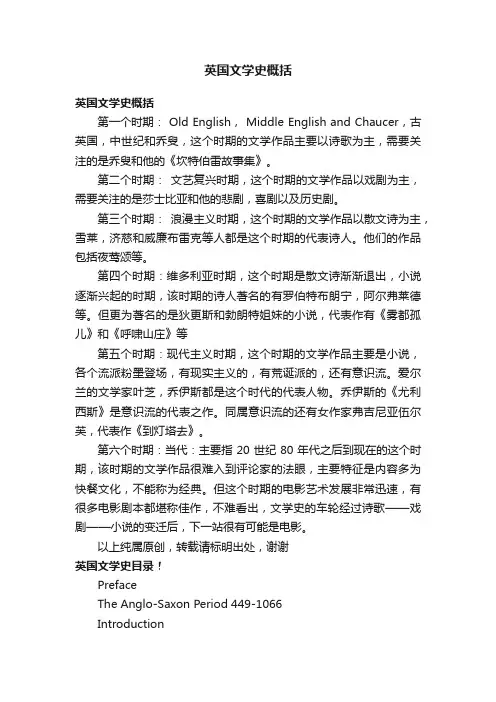
英国文学史概括英国文学史概括第一个时期: Old English, Middle English and Chaucer,古英国,中世纪和乔叟,这个时期的文学作品主要以诗歌为主,需要关注的是乔叟和他的《坎特伯雷故事集》。
第二个时期:文艺复兴时期,这个时期的文学作品以戏剧为主,需要关注的是莎士比亚和他的悲剧,喜剧以及历史剧。
第三个时期:浪漫主义时期,这个时期的文学作品以散文诗为主,雪莱,济慈和威廉布雷克等人都是这个时期的代表诗人。
他们的作品包括夜莺颂等。
第四个时期:维多利亚时期,这个时期是散文诗渐渐退出,小说逐渐兴起的时期,该时期的诗人著名的有罗伯特布朗宁,阿尔弗莱德等。
但更为著名的是狄更斯和勃朗特姐妹的小说,代表作有《雾都孤儿》和《呼啸山庄》等第五个时期:现代主义时期,这个时期的文学作品主要是小说,各个流派粉墨登场,有现实主义的,有荒诞派的,还有意识流。
爱尔兰的文学家叶芝,乔伊斯都是这个时代的代表人物。
乔伊斯的《尤利西斯》是意识流的代表之作。
同属意识流的还有女作家弗吉尼亚伍尔芙,代表作《到灯塔去》。
第六个时期:当代:主要指20世纪80年代之后到现在的这个时期,该时期的文学作品很难入到评论家的法眼,主要特征是内容多为快餐文化,不能称为经典。
但这个时期的电影艺术发展非常迅速,有很多电影剧本都堪称佳作,不难看出,文学史的车轮经过诗歌——戏剧——小说的变迁后,下一站很有可能是电影。
以上纯属原创,转载请标明出处,谢谢英国文学史目录!PrefaceThe Anglo-Saxon Period 449-1066IntroductionThe Venerable Bede and Caedmon King Alfred the GreatBeowulfThe Exeter BookThe Medieval Period 1066 -1485 IntroductionMedieval RomanceFolk BalladsJohn Wycliffe and William Langland Drama in the Middle AgesGeoffrey ChaucerThe Elizabethan Age 1485-1625 IntroductionThomas MoreSir Philip SidneyEdmund SpenserChrisher Marlowe and Sir Walter Raleigh Minor PlaywrightsWilliam ShakespeareFrancis BaconKing James BibleThe Seventeenth Century 1625-1700 IntrodutionBen Jonson and the Cavalier Poets John Donne and the Metaphysical Poets John MiltonJohn BunyanJohn DrydenThe Age of Neo-Classici *** 1700-1764 IntroductionAlexander PopeJonathan SwiftRichard Steele and Joseph AddisonSamuel Johnson and James BoswellThe Novel of the Eighteenth CenturyDaniel DefoeSamuel RichardsonHenry FieldingTobias SmollettLaurence SterneOliver Gold *** ithPre-Romantic Period 1764-1798IntroductionHorace WalpoleAnn RadcliffeThomas GrayRobert BurnsWilliam BlakeThe Romantic Age 1798-1837IntroductionWilliam WordsworthSamuel Taylor Coleridge……The Victorian Age 1837-1901The Modernist Age 1901-1945The Postmodern Period 1945-Present BibliographyIndex……关于英国文学史刘柄善的那本《英国文学史》上说,维多利亚时期是英国现实主义小说的巅峰时期,代表人物就是狄更斯,而当时英国之所以掀起现实主义风潮,则是因为此前的18世纪到19世纪初期,浪漫主义风靡英国,雪莱,济慈等人的诗歌风花雪月,让人一时忘却了现实,但随着浪漫褪去,人们又重归现实,于是狄更斯等人的现实主义作品,如《雾都孤儿》,《大卫科波菲尔》等书得以广为流传。
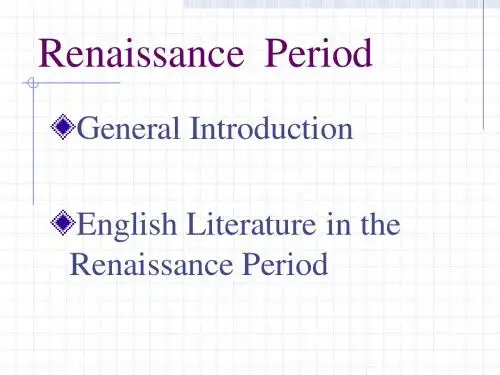
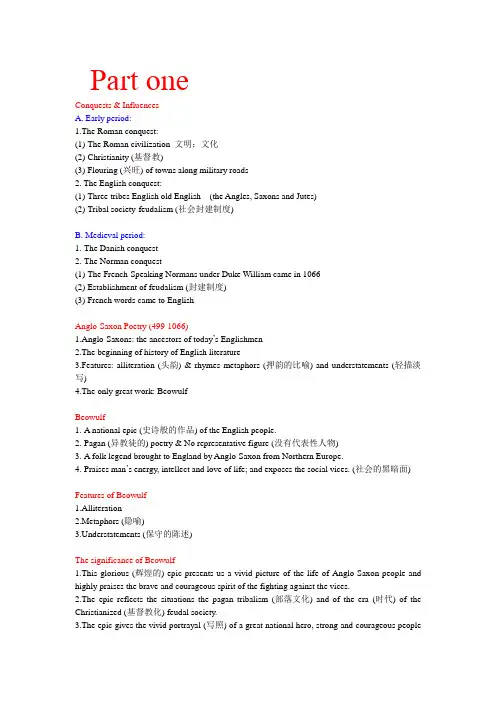
Part oneConquests & InfluencesA. Early period:1.The Roman conquest:(1)The Roman civilization 文明;文化(2)Christianity (基督教)(3)Flouring (兴旺) of towns along military roads2. The English conquest:(1)Three tribes English old English (the Angles, Saxons and Jutes)(2)Tribal society-feudalism (社会封建制度)B. Medieval period:1.The Danish conquest2.The Norman conquest(1)The French-Speaking Normans under Duke William came in 1066(2)Establishment of feudalism (封建制度)(3)French words came to EnglishAnglo-Saxon Poetry (499-1066)1.Anglo-Saxons: the ancestors of today’s Englishmen2.The beginning of history of English literature3.Features: alliteration (头韵) & rhymes metaphors (押韵的比喻) and understatements (轻描淡写)4.The only great work: BeowulfBeowulf1.A national epic (史诗般的作品) of the English people.2.Pagan (异教徒的) poetry & No representative figure (没有代表性人物)3.A folk legend brought to England by Anglo-Saxon from Northern Europe.4.Praises man’s energy, intellect and love of life; and exposes the social vices. (社会的黑暗面)Features of Beowulf1.Alliteration2.Metaphors (隐喻)3.Understatements (保守的陈述)The significance of Beowulf1.This glorious (辉煌的) epic presents us a vivid picture of the life of Anglo-Saxon people and highly praises the brave and courageous spirit of the fighting against the vices.2.The epic reflects the situations the pagan tribalism (部落文化) and of the era (时代) of the Christianized (基督教化) feudal society.3.The epic gives the vivid portrayal (写照) of a great national hero, strong and courageous peopleand his kinfolk. (亲属)Feudal England1.The chief features of the society was division into two classes: Landlords and peasants.2.The peasants’ rising shook the feudal system in England to the root.The Romance1.The code of manners and morals of a knight is known as chivalry (骑士精神).2.The English versions of romances were translated from French or Latin.3.The romance of King Arthur is the most important for the history of English literature.4.The romance’s culmination (顶点) in <Sir Gawain and the Green Knight> (metrical romance)5.The romance’s summing up in Thomas Malory’s <Le Morte D’Arthur> (in English prose散文)6.<Le Morte D’ Arthur >(i. E. the Death of King Arthur ) is a collection of stories about King Arthur, translated from French by Sir Thomas Malory.Langland<Piers the plowman> written by William Langland shows the existence of English popular literature.The English BalladsBallad: a story told in song, usually in four-line stanzas, with the second and fourth lines rhymed.The various ballads of Robin Hood are gathered into a collection called: The Geste of Robin HoodChaucer一.Chaucer’s Literary CareerThe three periods of Chaucer’s career1.Works translated from French, as <The Romaunt of the Rose>2.Works adapted from the Italian, as <Troilus and Criseyde>3.<The Canterbury Tales> which is purely English二.The Canterbury Tales’ Social Significance(参考)1.A true-to-life picture of Chaucer’s time2.Taking the stand of the rising bourgeoisie, Chaucer affirms men’s rights to pursue their earthly happiness and opposes the dogma of asceticism preached by the church3.As a forerunner of humanism, he praises man’s energy, intellect and love of life4.Attack social evils of his time三.The Wife of Bath四.Chaucer’s LanguageChaucer’s language, now called Middle English, is vivid and exact. He is a master ofworld-pictures. His verse (诗) is among the smoothest in English. There are pages where, in spite of trifling (微不足道的) differences in spelling and grammar, hardly a single word will offer difficulties to a man of tolerable (可容忍的) reading in modern English.五.Chaucer’s Contribution1.He introduced heroic couplet to English poetry, instead of the old Anglo-Saxon alliterative verse.2.He was the first great poet who wrote in English language (Middle English) , thus establishing English as the literary language.3.He did much in making the London dialect the foundation for modern English language.名词解释1.AlliterationAlliteration is regular repetition of the same sounds---usu. Initial consonants of words or of stressed syllables----in Old and Middle English verse:’ Kindest to kinsmen and keenest for fame’in Beowulf Alliteration is also known as ‘initial rhyme’ or ‘head rhyme’.2.EpicA long narrative poem telling about the deeds of a great hero and reflecting the values of the society from which it originated.3.Ballada story told in song, usually in four-line stanzas, with the second and fourth lines rhymed.4.Heroic CoupletA traditional form for English poetry: it reflects to rhymed iambic pentameter lines in pairs. Use of the heroic couplet was first pioneered by Geoffrey Chaucer in the Canterbury Tales.-Part twoOld English in Transition (过渡;转变)一.The Reformation (文化精神领域改革) (详细见书P27)二.The English BibleThen appeared the Authorized Version, which was made in 1611 under the auspices of James Ⅰand so was sometimes called the King James Bible.The result is a monument (不朽的作品) of English language and English literature.名词解释:1.Help-mate2.Peacemaker3.Tender mercy4.Loving flesh5.Root of all evil三.The Enclosure Movement (圈地运动)四.The Renaissance (文艺复兴) and Humanism (人道主义)A.Renaissance1.The Renaissance: an intellectual movement sprang first in Italy in the 14th century and gradually spread all over Europe.2.People had a thirsting curiosity for the classical literature.3.People showed the keen interest in the activities of humanity.4.People ceased to look upon themselves as living only for God and a future world.5.Humanism is the essence(本质)of the Renaissance.6.The Renaissance, therefore, is a history period in which the Europe humanist thinkers and scholars tried to get rid of those old feudalistic ideas in Medieval Europe, to introduce new ideas that express the interests of the rising bourgeoisie, and to recover the purity of the early church from the corruption of the Roman catholic church.B.Humanism1.Humanism emphasized the dignity and potential of the individual and the worth of life in this world.2.Man is the measure of all things.3.Man has ability to perfect themselves, to develop the individual.4.Man should enjoy the present life.MoreThomas More was born in a middle-class family. His father was a prominent (杰出的) lawyer, and later a judge.<Utopia>Utopia is More’s masterpiece, written in the form of a conversation between More and Hythloday, a returned voyager (航海者).The name ‘Utopia’ comes from two Greek words meaning ‘no place’ and was adopted by More as the name of his ideal commonwealth.The Flowering of English Literature1.Sir Philip SidneySir Philip Sidney is well-known as a poet and critic of poetry.His collection of love sonnets (十四行诗), Astrophel and Stella, was published in 1591, after his death.2.Edmund Spenser--’The Fairy Queen’The faerie Queeene is a long poem planned in twelve books, of which he finished only six.It is an allegorical work dedicated to Queen Elizabeth Ⅰ.Largely symbolic, the poem follows several knights in their adventures to test their virtues: Holiness, Temperance, Chastity, Friendship, Justice, Courtesy.Dominating thoughts: nationalism, humanism, and puritanism.Spenser’s position in English literatureSpenser has held his position as a model of poetical art among the Renaissance English poets, and his influence can be traced in the works of Milton, Shelley and Keats.3.Francis BaconBacon was the founder of modern science in England. It began with a survey of the accomplishments of science up to his time and an examination of the reasons why it has not achieve more.The English version of his part forms his Advancement of Learning.Then followed his New Instrument.Bacon is also famous for his Essays.Drama1.The Miracle Play2.The Morality PlayA morality presented the conflict of good and evil with allegorical personages, such as Mercy, Peace, Hate, Folly and so on.3.The InterludeThen there arouse a new kind of drama called ‘Interlude’, a short performance slipped into a play to enliven the audience after a solemn scene.4.The playwrightsThere was a group of so-called ‘university wits’ (Lyly, Peele, Marlowe, Greene, Lodge and Nash) wrote for the stage of the time.MarloweThe most gifted of the ‘university wits’ was Christopher Marlowe.Marlowe was the son of a shoemaker in Canterbury.Marlowe’s best includes three of his plays, Tamburlaine (对权利的贪婪), The Jew of Malta (对钱的贪婪), and Doctor Faustus (对知识的贪婪)Marlowe’s Literary AchievementIt is Marlowe who first made blank verse (rhymeless iambic pentameter) the principal instrument of English drama. His blank verse is a living thing; it is vigorous, fluid and precise.His work paved the way for the plays of the greatest English dramatist Shakespeare---whose achievement were the monument of the English Renaissance.Shakespeare四大悲剧/喜剧悲剧:《Hamlet》《Othello》《King Lear》《Macbeth》喜剧:《A Midsummer Night’s Dream 》《As You Like It》《Twelfth Night》《The Merchant Of Venice》Shakespeare lived in an age when the old feudal social and economic order was being destroyed and a new capitalist society was being born and when London took a leading part in that destruction and that new birth.In 1593 and 1594, Shakespeare published his two narrative poem Venus and Adonis and The Rape of Lucrece. His Sonnets were printed in 1609.Scholars have had to work out the chronological (按时间顺序的) order of his plays, based on three kinds of evidence:A.External evidenceB.Internal evidenceC.Stylistic evidencePeriods of Shakespeare’s Dramatic CompositionⅠ.The period of his apprenticeship in play-writingⅡ.Mature period,mainly a period of ‘great comedies’ and mature historical playsⅢ.The period of ‘great tragedies’ and ‘dark comedies’Ⅳ,The period of romantic drama.。
目录第1单元杰弗里•乔叟 (7)1.1复习笔记 (7)1.2课后习题详解 (8)1.3考研真题与典型题详解 (8)第2单元威廉•莎士比亚 (13)2.1复习笔记 (13)2.2课后习题详解 (16)2.3考研真题与典型题详解 (17)第3单元弗朗西斯•培根 (26)3.1复习笔记 (26)3.2课后习题详解 (26)3.3考研真题与典型题详解 (27)第4单元17世纪英国诗人 (30)4.1复习笔记 (30)4.2课后习题详解 (32)4.3考研真题与典型题详解 (33)第5单元冒险小说作家 (39)5.1复习笔记 (39)5.2课后习题详解 (41)5.3考研真题与典型题详解 (42)第6单元浪漫主义诗人(1) (50)6.1复习笔记 (50)6.2课后习题详解 (54)6.3考研真题与典型题详解 (56)第7单元简•奥斯汀 (66)7.1复习笔记 (66)7.2课后习题详解 (67)7.3考研真题与典型题详解 (67)第8单元浪漫主义诗人(2) (72)8.1复习笔记 (72)8.2课后习题详解 (74)8.3考研真题与典型题详解 (75)第9单元夏洛蒂•勃朗特 (86)9.1复习笔记 (86)9.2课后习题详解 (87)9.3考研真题与典型题详解 (88)第10单元查尔斯•狄更斯 (92)10.1复习笔记 (92)10.2课后习题详解 (93)10.3考研真题与典型题详解 (94)第11单元维多利亚时代的诗人 (100)11.1复习笔记 (100)11.2课后习题详解 (102)11.3考研真题与典型题详解 (104)第12单元托马斯•哈代 (115)12.1复习笔记 (115)12.2课后习题详解 (116)12.3考研真题与典型题详解 (117)第13单元现代剧作家 (121)13.1复习笔记 (121)13.2课后习题详解 (123)13.3考研真题与典型题详解 (124)第14单元约瑟夫•康拉德 (130)14.1复习笔记 (130)14.2课后习题详解 (131)14.3考研真题与典型题详解 (132)第15单元20世纪英国诗人(1) (134)15.1复习笔记 (134)15.2课后习题详解 (136)15.3考研真题与典型题详解 (137)第16单元现代主义小说家(1) (152)16.1复习笔记 (152)16.2课后习题详解 (154)16.3考研真题与典型题详解 (155)第17单元现代主义小说家(2) (163)17.1复习笔记 (163)17.2课后习题详解 (164)17.3考研真题与典型题详解 (164)第18单元E•M•福斯特 (168)18.1复习笔记 (168)18.2课后习题详解 (169)18.3考研真题与典型题详解 (170)第19单元威廉•戈尔丁 (173)19.1复习笔记 (173)19.2课后习题详解 (174)19.3考研真题与典型题详解 (174)第20单元多丽斯•莱辛 (177)20.1复习笔记 (177)20.2课后习题详解 (178)20.3考研真题与典型题详解 (178)第21单元约翰•福尔斯 (181)21.1复习笔记 (181)21.2课后习题详解 (182)21.3考研真题与典型题详解 (182)第22单元20世纪英国诗人(2) (184)22.1复习笔记 (184)22.2课后习题详解 (187)22.3考研真题与典型题详解 (188)第23单元 A. S. 拜厄特 (192)23.1复习笔记 (192)23.2课后习题详解 (193)23.3考研真题与典型题详解 (193)第24单元V. S. 奈保尔 (195)24.1复习笔记 (195)24.2课后习题详解 (196)24.3考研真题与典型题详解 (197)第25单元格雷厄姆•斯维夫特 (199)25.1复习笔记 (199)25.2课后习题详解 (200)25.3考研真题与典型题详解 (200)第26单元石黑一雄 (202)26.1复习笔记 (202)26.2课后习题详解 (203)26.3考研真题与典型题详解 (203)第27单元伊恩•麦克尤恩 (205)27.1复习笔记 (205)27.2课后习题详解 (206)27.3考研真题与典型题详解 (206)第28单元朱利安•巴恩斯 (207)28.1复习笔记 (207)28.2课后习题详解 (208)28.3考研真题与典型题详解 (208)第1单元杰弗里•乔叟1.1复习笔记Geoffrey Chaucer (杰弗里·乔叟)(1343-1400)1. Life (生平)Geoffrey Chaucer, born in 1343 in London, is the founder of English poetry. He was the son of a wine merchant who had connections with the Court. He later became a courtier and comptroller.Chaucer‘s learning was wide in scope. He obtained a good knowledge of Latin, French and Italian. He had broad and intimate acquaintance with persons high and low in all walks of life, and knew well the whole life of his time, which left great impressions upon his works and particularly upon his variegated depiction of the English society of his time.He died in 1400 and was buried in Westminster Abbey, thus founding the Poets‘ Corner.杰弗里·乔叟于1343年出生于伦敦,他是英语诗歌之父。
Part II The RenaissanceI.Fill in the blanks.1.The 16th century in England was a period of the breaking up of _____________relations andthe establishing of the foundations of _______________.2.____________ broke off with the Pope, dissolved all the monasteries and abbeys in thecountry, confiscated their lands and proclaimed himself head of ______________________.3.The old English aristocracy having been exterminated in the course of the War of ________,a new nobility, totally dependent on King’s power, come to the fore.4.Absolute monarchy in England reached its summit during the reign of __________.5._____________ was the first to introduce the sonnet into English literature. In Elizabethantime, the three greatest sonnet writers are William Shakespeare, __________________ and _________________.6.Hamlet, Othello, King Lear, and ___________ are generally regarded as Shakespeare’s fourgreat tragedies.7.During the twenty-two years of his literary work, Shakespeare produced ______plays,_____narrative poems and ______ sonnets.8.The Tragical History of Doctor Faustus is one of ______________’s best plays. And it is himwho made __________ the principal vehicle of expression in drama.9._____________ is often referred to as the poets’ poet.10.Pope described Francis Bacon as the ___________, ___________, _____________ ofmankind. Bacon’s works may be divided into three classes, the __________, the __________, the _________ works.II. Find out the match from column B for each item in column A.(I) Find out the author and his work.A B1. ( ) Thomas More a. Gorge Green2. ( ) Edmund Spenser b. Eupheus3. ( ) John Lyly c. The Fairy Queen4. ( ) Marlowe d. Utopia5. ( ) Robert Greene e. The Jew of Malta(II). The relationship with Hamlet.A B1. ( ) Ghost a. friend2. ( ) Claudius b. mother3. ( ) Queen Gertrude c. father4. ( ) Horatio d. girlfriend5. ( ) Polonius e. girlfriend’s father6. ( ) Ophelia f. uncle(III). The character in the play.A B1. ( ) The Merchant of Venice a. Desdemona2. ( ) As You Like It b. Cordelia3. ( ) Hamlet c. Juliet4. ( ) King Lear d. Ophelia5. ( ) Othello e. Portia6. ( ) Romeo and Juliet f. RosalindIII. Define the literary terms listed below.1.Renaissance:1)The word, meaning “rebirth”, is commonly applied to the movement or period whichmarks the transition from the medieval to the modern in Western Europe.2)In the usual sense of the word, Renaissance suggests especially the 14th, 15th, 16th, andearly 17th centuries, the dates differing for different countries.3)(It is best to regard the Renaissance as the result of a new emphasis upon and a newcombination of tendencies and attitudes already exiting, stimulated by a series of historical events. )The new humanistic learning resulted from the rediscovery of classical literature is frequently taken as the beginning of the Renaissance on its conscious, intellectual side, since it was to the treasures of classical culture and to the authority of classical writers that the people of the Renaissance turned for inspiration.2.sonnet:1)It is a lyric poem of 14 lines with formal rhyme scheme, expressing different aspects of asingle thought, mood, or feeling, sometimes resolved or summed up in the last lines of the poem.2)The form originated from medieval Italy in about 1230-1240, and reached its peak withthe Italian poet Petrarch. In the first half of the 16th century, Thomas Wyatt introduced the Italian sonnet into England and established English sonnet. The most famous English sonnet sequences appeared in Elizabethan times, including Sir Philip Sidney’s Astrophil and Stella (1591), Edmund Spenser’s Amoretti(1595) and Shakespeare’s Sonnets (1593-1598).3)The two main forms of the sonnet are the Patrarchan, or Italian, and the English, orShakespearean. The former consists of an octave, or eight-line stanza, and a sestet, or six-line stanza. The octave has two quatrains, rhyming abba, abba; the first quatrain presents the theme, the second develops it. The sestet is built on a few different rhymes, arranged cddcee, cdecde, cdccdc, or cdedce; the first three lines exemplify or reflect on the theme, and the last three lines bring the whole poem to a unified close. Philip Sidney’s sonnets are excellent examples of this style in the English language.4)The English sonnet consists of three quatrains, each rhymed differently, with a final,independently rhymed couplet that makes an effective, unifying climax to the whole.The rhyme scheme is abab, cdcd, efef, gg.3.humanism:1)Broadly, this term suggests any attitude which tends to exalt the human elements orstress the importance of human interests, as opposed to the supernatural, divine elements —or as opposed to the grosser, animal elements.2)In a more specific sense, humanism suggests a devotion to those studies supposed topromote human culture most effectively—in particular, those dealing with the life, thought, language, and literature of ancient Greece and Rome. In literary history the most important use of the term is to designate the revival of classical culture which accompanied the Renaissance.4.tragedy:1)Tragedy is concerned with the harshness and apparent injustice of life.2)It usually recounts an important and causally related series of events in the life of aperson of significance. The events would culminate in trials and catastrophes of a hero, who falls down from power and whose eventual death leads to the downfall of others.Often the hero’s fall from happiness is due to a weakness in his character, a weakness such as the excessive pride of Faustus, the overweening ambition of Macbeth, or the uncontrolled jealousy of Othello, which brings self-destruction.3)The tragic action aroused feelings of awe in the audience, who often leave the theatrewith a renewed sense of the seriousness and significance of human life. The word catharsis is often used to describe the audience’s feelings. It means the purging from the mind of the feelings of pity and fear the play has aroused.5.essay:1)The term refers to literary composition devoted to the presentation of the writer’s ownideas on a topic and generally addressing a particular aspect of the subject. Often brief in scope and informal in style, the essay differs from such formal expository forms as the thesis, dissertation, or treatise.2)The development of the form may be considered a result of the Renaissance emphasis onthe individual, which fostered exploration of one’s inner self in relation to the outside world.6.classicism: 1) As a critical term, classicism is a body of doctrine thought to be derivedfrom or to reflect the qualities of ancient Greek criticism. Classicism stands for certain definite ideas and attitudes, mainly drawn from the critical utterances of the Greeks and Romans or developed through an imitation of ancient art and literature. These include restraint, restricted scope, dominance of reason, sense of form, unity of design and aim, clarity, simplicity, balance, attention to structure and logical organization, chasteness in style, severity of outline, moderation, self-control, intellectualism, decorum, respect for tradition, imitation, conservation, and good sense.IV. Answer the following questions.1.Give a summary about the English literature during the Renaissance period.Answer:a)English literature in the Renaissance Period is usually regarded as the highlight in thehistory of English literature. In the second period of English Renaissance, that is, in Elizabethan Period, English literature developed with a great speed and made a magnificent achievement.b)The greatest and most distinctive achievement of Elizabethan literature is the drama.Thus appeared a group of excellent dramatists. They are John Lyly, Thomas Kyd, George Peele, Robert Greene, Christopher Marlowe, William Shakespeare, and Ben Johnson.c)Next to the drama is the lyrical poetry. Elizabethan poetry is remarkable for its variety,its freshness, its youthfulness, and its romantic feeling. A group of great poets appeared, such as Thomas Wyatt, Henry Howard, Philip Sidney, and Edmund Spenser. In that time, writing poetry became a fashion, and Queen Elizabeth herself was also a poet.d)Besides drama and poetry, there were also some prose writings, though not so many,such as Thomas More’s Utopia, which may be thought as the first literary masterpiece of the English Renaissance, and Francis Bacon’s Essays, which makes the author one of the best essayists in English literature.2.Give a brief comment on The Merchant of Venice.Answer:a)Of Shakespeare’s earlier comedies, The Merchant of Venice is certainly the mostoutstanding one in which Shakespeare creates tension, ambiguity, a self-conscious and self-delighting artifice that is at once intellectually exciting and emotionally engaging.The sophistication derives in part from the play between high, outgoing romance and dark forces of negativity and hate.b)The traditional theme of the play is to praise the friendship between Antonio andBassano, to idealize Portia as a heroine of great beauty, wit and loyalty, and to expose the insatiable greed and brutality of the Jew, but later, especially after the holocaust committed by the Nazi Germany during the Second World War, it is very difficult to see Shylock as a conventional evil figure. And many people today tend to regard the play asa satire of the Christian hypocrisy and their false standard of friendship and love, theircunning ways of pursuing worldliness and their unreasoning prejudice against Jews.3.Read Bacon’s “Of Studies” carefully, and use it as an example to illustrate Bacon’s writingstyle.Answer:Bacon’s essays are famous for their brevity, compactness, and powerfulness. Yet there is an obvious stylistic change in his Essays. The sentences in the first edition are charged and crowded with symmetries. They are composed in a rather affected way. However, the final edition not only enlarges the range of theme, but also brings forth the looser and more persuasive style. The essays are well arranged and enriched by biblical allusions, metaphors, and cadence.V. For each of the quotation listed below please give the title of the literary work from which it is taken, then give a brief analysis of them.1.To be, or not to be: that is the question:Whether ’tis nobler in the mind to sufferThe slings and arrows of outrageous fortune,Or to take arms against a sea of troubles,And by opposing end them. To die, to sleep:……With this regard their currents turn awry,And lose the name of action.Answer: 1) This quotation is taken from Hamlet.2) Analysis:①Hamlet is urged by the ghost to seek revenge for his father’s foul and most unnaturalmurder. But Hamlet has none of the single-minded blood lust of the earlier revenges. It is not because he is incapable of action, but the cast of his mind is so speculative, so questioning, and so contemplative. That action, when it finally comes, seems almost like defeat, diminishing rather than adding to the stature of the hero.②Trapped in a nightmare world of spying, testing and plotting, and apparently bearingthe intolerable burden of the duty to revenge his father’s death, Hamlet is obliged to inhabit a shadow world, to live suspended between fact and fiction, language and action.His life is one of constant role-playing, examining the nature of action only to deny its possibility; for he is too sophisticated to degrade his nature to the conventional role of astage revenger.③For such a figure, soliloquy is a natural medium, a necessary release of his anguish,and some of his questioning monologues possess surpassing power and insight, which have survived centuries of being torn from their context.④But our interest is not only in Hamlet the tragic hero for this play but alsoShakespeare’s most detailed exposure of a corrupted court—“an unweeded garden” in which there is nothing but a foul and pestilent congregation of vapours. By revealing the power-seeking, the jostling for place, the hidden motive, the courteous superficialities that veil lust and guilt, Shakespeare condemns the hypocrisy and treachery and general corruption at the royal court.2.Shall I compare thee to a summer’s day?Thou art more lovely and more temperate:……So long as men can breathe, or eyes can see,So long lives this, and this gives life to thee.Answer: 1) This poem is taken from Shakespeare’s Sonnets.2) Analysis: Though they are well with the general tradition of Elizabethan sonnet cycles,Shakespeare’s sonnets are in several ways unique.①The principal person addressed by the poet is not a woman but a young man; the darklady, when she appears, is vastly different from the Delias and Celias of Petrarchan convention. More importantly, the depths of moral and aesthetic contemplation in Shakespeare’s sonnets are far more profound than we find in other Elizabethan cycle.②With 3 exceptions (99, 126 and 154) Shakespeare uses the sonnet in the popularEnglish form, first fully developed by Shakespeare. The couplet usually ties the sonnet to one of the general themes of the series, leaving the quatrains free to develop the poetic intensity, which makes the separate sonnets so memorable.③Shakespeare’s sonnets constitute a vast landscape of metaphor, surprising oftenbecause it seems to anticipate the atmosphere of some of the later plays. In this landscape are some vividly recognizable figures—the poet, the friend, the Dark Lady, and, more indefinite, the rival poetPart III The Period of Revolution and RestorationI. Fill in the blanks.1.The 17th century was a period when _________________ impeded the further developmentof capitalism in England and the ____________ could no longer bear the sway of ______________.2.There were religious division and confusion and a long bitter struggle between the people’sParliament and the Throne—___________ fighting against the ____________ who helped the king.3.After _________’s death, monarchy was again restored (1660). It was called the period of the______________.4.The Glorious Revolution in _______ meant three things: the supremacy of __________, thebeginning of __________________, and the final triumph of the principle of _____________.5.The Puritans believed in ____________ of life. Under the powerful influence of them, thetheatres were closed in ________. And the Revolution Period is also called ______________, because the English Revolution was carried out under a religious cloak.6.Restoration created a literature of its own, that was often ______ and _______, but on thewhole __________ and _________. The most popular genre in the literature of the Restoration was that of ____________ whose chief aim was to entertain the licentious aristocrats.7.Donne entered the church in 1615, where he rose rapidly to be Dean of ______________.The first thing to strike the reader is Donne’s extraordinary ____________ and penetrating ___________. The next is the ___________ which marks certain of the lighter poems and which represents a conscious reaction from the extreme _____________ of woman encouraged by the Petrachan tradition.ton opposed the ____________ party and gave all his energies to the writing of_____________ dedicated to the people’s liberties.9.Paradise Lost, consisting of ______books, tells how ________ rebelled against God and how_______ and ________ were driven out of Eden. And it presents the author’s view in an_________, ___________ form.10.In Revolution Period _________ towers over his age as William Shakespeare towers over theElizabethan Age and as Chaucer towers over the Medieval Period.11.During the civil war and commonwealth, there were two leaders in England, Cromwell, theman of action, and __________, the man of thought.ton and Bunyan represented the extreme of English life in the 17th century. One gave usthe only epic since _____________, the other gave us the only great ___________.13.Bunyan’s most important work is ______________________________, written in theold-fashioned, medieval form of ___________ and dream. In the book, Bunyan gives a vivid and satirical description of ___________________, which is the symbol of London at the time of Restoration.14.The literature of the middle and later periods of the 17th century cultivated in the poetry of___________, in the prose writing of _________, and also in the plays and literary criticism of ___________.II. Define the literary terms listed below.1.three unities:Three rules or absolutes of 16th-17th-century Italian and French drama, broadly adapted from Aristotle’s Poetics: the unity of time, which limits a play to a single day, the unity of place, which limits a play’s setting to a single location, and the unity of action, which limits a play to a single story line.2.conceit:1)It comes from the Italian concetto, meaning “concept”or “idea”, and was uses inRenaissance poetry to mean a precise and detailed comparison of something more remote or abstract with something more present or concrete; and often detailed through a chain of metaphors or similes.2)Two types of conceit are often distinguished by specific names:①The Petrarchan conceit is a type of figure used in love poems that had been noveland effective in the Italian poet Petrarch, but became hackneyed in some of his imitators among the Elizabethan sonneteers.②The metaphysical conceit is a characteristic figure in John Donne and othermetaphysical poets of the 17th century. The metaphysical poets exploited all knowledge for the vehicle of these figures; and their comparisons, whether succinct or expanded, were often novel and witty, and at their best startlingly effective.3) The metaphysical conceit fell out of favor in the 18th century, when it came to beregarded as strained and unnatural. But with the great revival of interest in the metaphysical poets during the early decades of the 20th century, a number of modern poets exploited this type of figure. At the beginning of “The Love of J. Alfred Prufrock”, for example, T. S. Eliot compares the evening to “ a patient etherized upon a table”.3.masque:An elaborate form of court entertainment——a mixture of drama, music, song, and dance ——developed in the Renaissance Italy and transported to England during Elizabethan times. The speaking characters, who were often courtiers, wore masks. Comus (1634) by John Milton is probably the most important masque in English literature.4.pastoral:A literary work dealing with, and often celebrating, a rural world and a way of life livedclose to nature. Pastoral denotes subject matter rather than form; hence, the terms pastoral lyric, pastoral ode, pastoral elegy, pastoral drama, pastoral epic, and pastoral novel. A poetic example of English pastoral poetic conventions occurs in Christopher Marlowe’s The Passionate Shepherd to His Love.5.allegory:1)It is a fictional literary narrative or artistic expression that conveys a symbolic meaningparallel to but distinct from, and more important than the literal meaning. Allegory has also been defined as an extended metaphor. The symbolic meaning is usually expressed through personifications and other symbols. Related forms are the fable and the parable, which are didactic, comparatively short, and simple allegories.2)The art of allegory reached its height during the Middle Ages, especially in the works ofthe Italian poet Dante and the English poet Geoffrey Chaucer, and during the Renaissance.3)Two early example of allegory are Le Roman de la Rose (《玫瑰传奇》, by French writerDaniel Poirion and was translated into English by Chaucer.) and Piers the Plowman. The former is an allegory of human love, the latter an allegorical protest against the clergy. In The Faerie Queen the English poet Edmund Spenser conceals, beneath a surface of chivalric romance, a commentary on religious and ethical doctrines and on social conditions in 16th century England. One of the greatest of all allegories is Pilgrim’s Progress by the English writer John Bunyan, a prose narrative symbolically concerning the search for spiritual salvation. Although modern authors generally favor less abstract, more personal symbolism, allegories are still written. One extremely popular example is Animal Farm (1945) by the English writer George Orwell.6.genre:A form, class, or type of literary work, e.g. , the short story, novel, poem play, or essay; oftenused to denote such literary subclassifications as the detective story, the Gothic novel, the pastoral elegy, or the revenge tragedy.III. Find out the work from column A and its content from column B.1. ( ) Il Penseroso a. defense of the Revolution2. ( ) Lycidas b. Satan against God3. ( ) Comus c. about dear friend4. ( ) Areopagitica d. happiness5. ( ) Eikonolastes e. meditation6. ( ) Defense for the English People f. masque7. ( ) Paradise Lost g. attack on the censorship8. ( ) L’Allegro h. justifying the executionIV. Answer the following questions.1.What are the different aspects between the literature of Elizabethan Period and that of theRevolution Period?Answer:The Revolution Period was of confusion in literature. English literature of the Period witnessed a decline and degeneration. We can see that it is different from the literature ofElizabethan Period in three aspects.1)Elizabethan literature had a marked unity and the feeling of patriotism and devotion tothe Queen, but in the Revolution Period, all this was changed, the king became the open enemies of the people, and the country was divided by the struggle for political and religious liberty. So literature was as divided in spirit as were the struggling parties.2)Elizabethan literature was generally inspiring. It throbbed with youth, hope, and vitality.Literature in the Puritan Age expressed age and sadness. Even its brightness hours were followed by gloom and pessimism.3)Elizabethan literature was intensely romantic. The romance sprang from the heart ofyouth. People believed all things, even the impossible. But in literature of the Puritan Period, we can not find romantic ardor.2.Make a brief introduction to Paradise Lost.Answer:Paradise Lost is Milton’s masterpiece, and the greatest English epic. Before its actual writing, he had the subject in his mind for a quarter of a century, and made drafts about the characters and plot. It is a long epic in 12 books, done in blank verse. The stories were taken from the Old Testament: The creation; the rebellion in Heaven of Satan and his fellow-angels; their defeat and expulsion from Heaven; the creation of the earth and of Adam and Eve; the fallen angels in hell plotting against God; Satan’s temptation of Eve; and the departure of Adam and Eve from Eden.3.Why do people say Samson is Milton?1)Samson Agonistes is a poetical drama modeled on the Greek tragedies. The story wastaken from the Old Testament. Samson was an athlete of the Israelites. He stood as their champion fighting for the freedom of their country. But he was betrayed by his wife and blinded by his enemies, the Philistines. One day he was summoned to provide amusement for his enemies by feats of strength in a temple. There he wreaked his vengeance upon his enemies by pulling down the temple upon himself in a common ruin.2)In this poetic drama, Milton is telling us his own story. Like Samson, he has beenbetrayed by his wife. He has suffered from blindness and been scorned by his enemies,and yet he has struggled heroically against his enemies. Samson’s miserable blind servitude among his enemies, his agonizing longing for sight and freedom, and the last terrible triumph are all allusions to the poet’s own story. So the whole poem strongly suggests Milton’s passionate longing that he too could bring destruction down upon the enemy at the cost of his own life. Samson is Milton.V. Read Donne’s “The Flea” carefully, then give a brief analysis of it.The FleaMark but this flea, and mark in this,How little that which thou deniest me is;Me it sucked first, and now sucks thee,And in this flea our two bloods mingled be;Thou know’st that this cannot be saidA sin, or shame, or loss of maidenhead,Yet this enjoys before it woo,And pampered swells with one blood made of two,And this, alas, is more than we would doOh stay, three lives in one flea spare,Where we almost, nay more than married are.This flea is you and I, and thisOur marriage bed and marriage temple is;Though parents grudge, and you, we are met,And cloistered in these living walls of jet.Though use make you apt to kill meLet not to that, self-murder added be,And sacrilege, three sins in killing three.Cruel and sudden, hast thou sincePurpled thy nail in blood of innocence?Wherein could this flea guilty be,Except in that drop which it sucked from thee?Yet thou triumph’st, and say’st that thouFind’st not thy self nor me the weaker now;’Tis true; then learn how false fears be;Just so much honour, when thou yield’st to me,Will waste, as this flea’s death look life from thee.Analysis:1) At the heart of Donne’s poetic practice is the conceit, on which Donne’s strong argumentation or persuasion is built. His conceits are seldom simple or plain, on the contrary, they are complex, crafty, and sometimes systematic, for his ingenuity enables him to combine things unlike in his poetry.2) A poem may be composed of a group of conceits based on a central one. For instance, in “The Flea”, conceits on different levels are employed in the forceful persuasion. The flea’s sucking both the man’s and the lady’s blood is compared to be a worldly marriage; the flea then unifies them; when the lady angrily kills the flea, she commits suicide as well as murder. The central conceit ——is reinforced through different levels. Thus, the image is made more round and vivid.3) Donne is undoubtedly the master of conceits. And from these far-fetched conceits, he has got his fame as the great writer of conceited verse.。
Part ThreeThe Period of the English Bourgeois RevolutionChapter 1The English Revolution and the Restora tion1. The Weakening of the Tie between Monarchy and BourgeoisieThe T udor Dynasty: harmony (interests in commo n →collaboration)The end of Elizabe th’s reign: conflict (quarrels)2. The clashes between the King and ParliamentMonopolies on merchandiesCharles I dissolved it in 1629.3. The Outburst of the English Revolution(1) broke out in 1642 and lasted till 1649.(2) T wo camps:The royalists: conservative gentry, big landlords, monopolistsThe opposition leaders in Parliament: the merchants, artisans and apprentices, the peasants (Oliver Cromwell) (3) Result:Monarchy was abolished.England was declared a commonwealth (a republic)4. The Split within the Revolutionary CampThe middle bourgeoisie (Independents)The big bourgeoisie (Presbyterians)The petty bourgeoisie“The Movement of the Diggers” (掘地运动)1.The Bourgeois Dictatorship and the Restoration(1)The big bourgeoisie made a compromise with the feudal remnants.(2)After the death of Cromwell, the Parliament recalled Charles II to England in 1660.→the RestorationPeriod(3)The Bourgeoisie invited William to be King of England in 1688.→the “Glorious Revolution” (bloodless, norevival of the revolutionary demands)(4)The state structure of England was settled→Capitalism could develop freely.2.The Religious Cloak of the English Revolution(1)the English Revolution≈the Puritan Revolution(2)Puritanism:①②③④Puritan literature is different from the literature of Elizabethan Period(1558-1625)in the following three aspects:1) Elizabethan literature had a marked unity and the feeling of patriotism and devotion to the Queen, but in the Revolution Period,all this was changed, the king became the open enemy of the people, and the country was divided by the struggle for political and religious liberty. So literature was as divided in spirit as were the struggling parties. 2) Elizabethan literature was generally inspiring. It throbbed with youth and hope and vitality.Literature in the Puritan Age expressed age and sadness. Even its brightest hours were followed by gloom and pessimism.3) Elizabethan literature was intensely romantic.The romantic spirit sprang from the heart of youth.People believed all things, even the impossible.But in literature of the Puritan period, we cannot find any romantic ardor.3.Literature of the Revolution Period(1)concerned with the tremendous social upheavals of the time(2)Major Writers: John Milton, John BunyanChapter 2John Milton1. Life: 1608-1674(1) strongly condemned the subjects and methods of study at college(2) defined the true aim of knowledge as making the spirit of man(3) his personal beauty, strictness of life, nicknamed “the lady of Christ’s”2. Early PoemsOn t he Morning of Christ’s Nativity(his first important work)L’Allegro《欢乐颂》II Penseroso《沉思颂》ComusLycidas3. Major Works(1) Paradise Lost(2) Paradise Regained(3)Samson Agonistes4. Brief Summary(1) a great revolutionary poet of the 17th century (influence on later E. poetry)(2) wrote the greatest epic in E. L., (a grand style)(3) a master of the blank verse (in non-dramatic works); rich in every poetic quality and never monotonous(4) a great stylist; poetry noted for sublimity of thought and majesty of expression.(5) style with frequent inversions and complicated sentence structure;lines are long and rich in the variations of rhythm and pause.Chapter 3John Bunyan1. Life: 1628-1688(1) son of a poor tinker, never drunk(2) a man of singular innocence, sensitive imagination(3) religious fervour→terrible day-dreams(4) enlisted in the Parliamentary army(5) against social abuses and the oppressors of the poor(6) was put into the prison (12 years), making shoes, characteristic diligence2. The Pilgrim’s Progress(1) a religious allegory, telling of the spiritual pilgrimage of Christian(2) characters, real places, conversations (language)(3) remarkable passages: Vanity Fair, the persecution of Christian and his friend Faithful(4) a deep hatred of both the king and his government(5) his prose is admirable: It is popular speech ennobled by the solemn dignity and simplicity of the languageof the English Bible.Chapter 4Metaphysical Poets and Cavalier Poets1.Metaphysical Poets“Metaphysicals” (by Samuel Johnson, 18th C. writer): a school of poet in 17th C., mysticism in content, fantasticality in form)(1)John Donne (1572-1631):Status: the founder of the Metaphysical school of poetryTheme: secret love-making, elopement, imprisonment, lawsuit of marriageWorks: Songs and Sonnets (youthful love lyrics)Holy Sonnets (rich in religious thought)Devotions upon Emergent Occasions (sacred verse) 《突变引起的诚念》Features: a. extravagance, preposterous dimensionsb. sensuality blended with philosophy, passion with intellect, and contraries are ever moving one intothe other.c. seeking complex rhythms and strange images→“conceit” (奇思妙喻)※ A comparison between two unlike objects (“outrageous metaphor”)※Usually developed at length, comparing and contrasting two different aspects of the two objects to make their meaning clear.所谓奇思妙喻,指的是一种悖论性的隐喻,通过喻体和喻指之间的非相似性给读者的心灵带来震撼。